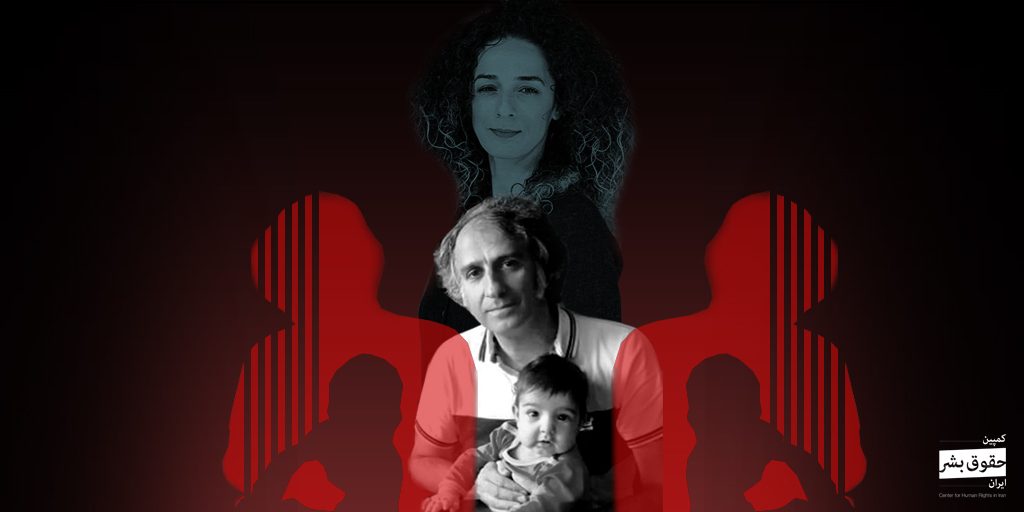Activist’s Brother Sentenced to Eight Years in Prison, Collective Punishment of Families Continues in Iran
 Alireza Alinejad Convicted on Sham National Security Charges and “Insulting” Supreme Leader
Alireza Alinejad Convicted on Sham National Security Charges and “Insulting” Supreme Leader
July 16, 2020—Alireza Alinejad, the brother of Iranian activist Masih Alinejad, has been sentenced to eight years in prison, under sham charges that reflect Iran’s continuing persecution of the family members of critics of the state.
Alireza’s lawyer, Saeid Dehghan, tweeted that he was notified of the sentence on July 15, 2020. The sentence is preliminary, he added.
Alireza Alinejad, 50, was sentenced to five years for “assembly and collusion against national security,” two years for “insulting the Supreme Leader” and one year for “propaganda against the state.”
The Center for Human Rights in Iran (CHRI) condemns this unjust sentence, the prosecution that preceded it, and the Islamic Republic’s continuing and unlawful practice of persecuting the family members of activists, journalists and other human rights defenders.
“Iran goes after the family members of activists and journalists, threatening them and prosecuting them under sham charges in judicial proceedings that lack any semblance of due process in order to silence critics of the state,” said Hadi Ghaemi, CHRI executive director.
If Alinejad’s appeal fails, he will have to serve five years, according Article 134 of Iran’s penal code, which states the harshest sentence of multiple sentences must be served.
Activist Sister Speaks Out at Injustice of Sentence
“Today, my innocent brother [Alireza Alinejad] has been sentenced to 8 years,” Masih Alinejad tweeted on July 16, 2020. The women’s rights activist, who lives in exile in the U.S., added: “Islamic Republic of Iran’s authorities stormed into prison his cell & hurriedly took him to trial. They’re scared of the anger of a nation as the hashtag #StopExecutionslnlran [a social media campaign aimed at stopping the execution of three young men who participated in the mass street protests in Iran in November 2019] went viral yesterday.
“In my brother’s sentence, 2 years of his 8-year sentence is due to ‘insulting the Supreme Leader of Islamic Republic’ @Khamenei_fa. But the reality is, my brother had said the following: ‘I will only disown my sister if Khamenei disowns his on TV.’ Is this an insult?”
(Supreme Leader Ali Khamenei’s sister, Badri Khamenei, fled to Iraq in 1985, where she became a vocal critic of the Islamic Republic. In 1995, she returned to Iran with her husband Ali Tehrani, who was also an outspoken critic of the regime. He was arrested and sentenced to 20 years in prison; Khamenei’s sister received no punishment.)
Alireza Alinejad has been in Ward 2A of Tehran’s Evin Prison under the control of the Islamic Revolutionary Guard Corps (IRGC) since his arrest in September 2019. A “portion” of Alireza Alinejad’s first court hearing for unspecified charges was focused on his sister’s activities, according to a private Instagram post by his lawyer, Saeed Dehghan. In April 2020, Masih Alinejad reported that her brother was being prosecuted in Iran to pressure her to end her public campaign against compulsory hijab.
Long-Standing Practice in Iran of Going After Families of Journalist and Activists
There have been may examples of Iranian authorities harassing and persecuting the family members of Iranian dissidents.
Most recently, Ali Nourizad, the son of imprisoned filmmaker and journalist Mohammad Nourizad, was prosecuted to “pressure” Nourizad to be silent, Nourizad’s wife Fatemeh Maleki told the Center for Human Rights in Iran (CHRI) in April 2020. Ali Nourizad was tried by Branch 26 of the Revolutionary Court in Tehran on April 28, 2020, for participating in a protest against the IRGC’s shooting down of a Ukrainian passenger plane. “They are punishing my son to put pressure on his father,” Maleki stated.
Also in April 2020, Iran’s Appeals Court upheld a one-year prison sentence against Tehran-based novelist Hamid Namjoo for the content of his writings and because he published work abroad. Hamid is the brother of Mohsen Namjoo, a prominent Iranian musician now based in the U.S. who was also mentioned in the verdict as a “fugitive dissident anti-revolutionary singer” and who was previously sentenced to prison in Iran for his artistic work.
UN and Human Rights Organizations Call on Iran to Stop Persecution of Families
In March 2020, top UN experts issued a joint statement, voiced alarm at the targeting of the families of journalists working for the BBC and other broadcasters, stating: “families [of journalists] residing in Iran have faced harassment and intimidation by Iranian authorities. In some cases, family members were deprived of their liberty and held in degrading conditions, and ordered to tell their relatives to stop working for the BBC. …We reiterate our earlier calls to the Iranian Government to cease …reprisals against their family members in Iran, which may constitute multiple violations of Iran’s international human rights obligations under international law.”
In October 2019, 13 major human rights organizations issued a Joint Letter on the Arrests of Activists’ Relatives by the Iranian Government, stating they were: “deeply concerned about arrests of family members of activists, journalists and political prisoners by the Iranian government. These arrests fit a pattern of intimidation and harassment often undertaken by the Iranian authorities to silence dissidents and civil society activists inside and outside Iran.”






